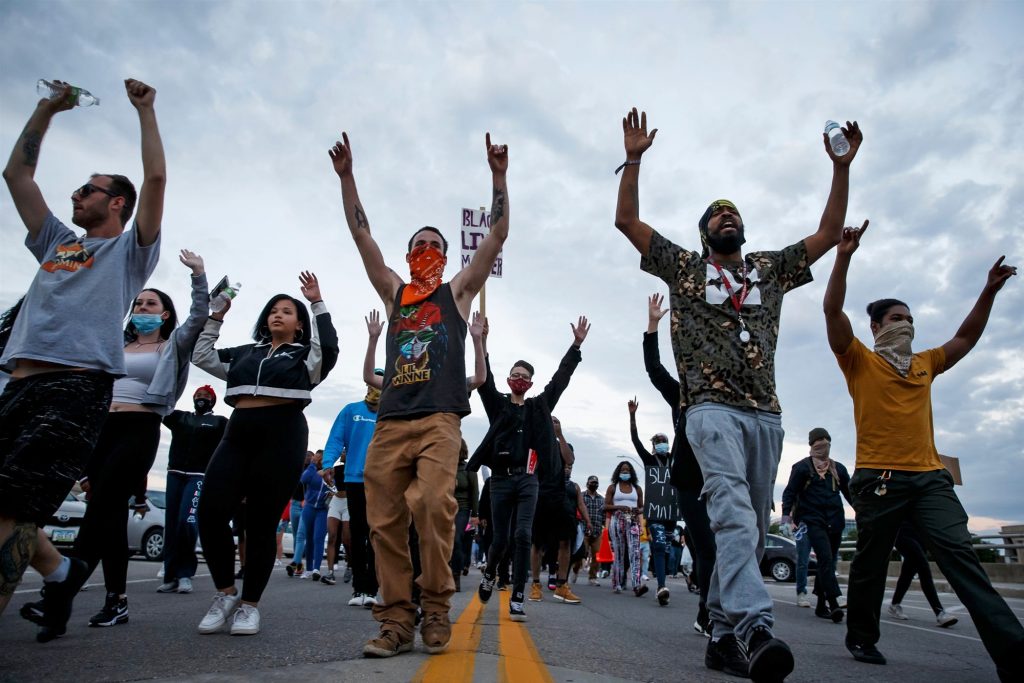
Iowa protesters march for racial justice
Iowa – Outside of the governor’s mansion in Des Moines, Iowa, on Tuesday evening, Dionna Langford spoke to a crowd of hundreds of protesters with a bullhorn.
“Black people,” said Langford, 28, who is African American, “if you have been harassed, terrorized, bullied by the police, in this city, make some noise.”
A large portion of the crowd clapped and yelled, according to a video of the protest.
“It isn’t just a somewhere-else issue,” she said. “This is a here issue.”
For the past week, Des Moines has seen thousands of people attend marches and rallies to protest racial discrimination and police violence. As in many cities nationwide, the mostly peaceful protests were spurred by the killing of George Floyd in police custody in Minneapolis on May 25. And as in other cities, police have used tear gas, pepper spray and rubber bullets on protesters and reporters.
But in Des Moines, the activists are already seeing progress on reforms they’ve long demanded from city leaders.
Speaking before a crowd of about 1,000 protesters who marched to his house Wednesday night, Des Moines Mayor Frank Cownie committed to bringing an ordinance to ban racial profiling by police for a vote at Monday’s City Council meeting. The next day, the mayor and county leaders met another of the protesters’ demands by lifting the nightly curfew imposed amid the demonstrations. And on Thursday, state lawmakers introduced legislation to ban chokeholds by police and empower the attorney general to investigate police misconduct.
“I think they set the model for what organizing can look like in the city,” Langford said in a phone interview, speaking of the protesters. “There was no ego, there was a lot of love, but there was also a ferocity that we recognize our power collectively.”

The sustained demonstrations are unusual for Des Moines, a city not known for protests. While Iowa is a hotbed for presidential politics because of the first-in-the-nation caucuses, activism in the state is typically much more subdued. Local organizers say they were surprised at first to see the size of the recent protests — but it shouldn’t have been unexpected given the many issues the black community faces in Des Moines, including concerns about policing.
Read Also – Mahmood Ahmadu Features in Dele Momodu’s Thisday Newspaper Article
“In this moment, with such a spotlight on black issues, it’s important for white people to understand this didn’t come out of nowhere,” said Ellie Odole, 18, who is African American and helped organize the protests.
Last month, the city approved a $75,000 settlement after a white police officer pepper-sprayed a black teenage girl at a downtown bus transfer station and threw her to the ground, bruising her ribs. The city paid another $75,000 in a settlement last year over a traffic stop of two young black men who accused the white police officers of racially profiling them and conducting an illegal search.
“We haven’t had a George Floyd, a Freddie Gray or all those others — but we don’t want one either,” said Sharon Zanders, special projects director of Iowa Citizens for Community Improvement, a nonprofit advocacy organization.
Source – https://www.nbcnews.com/